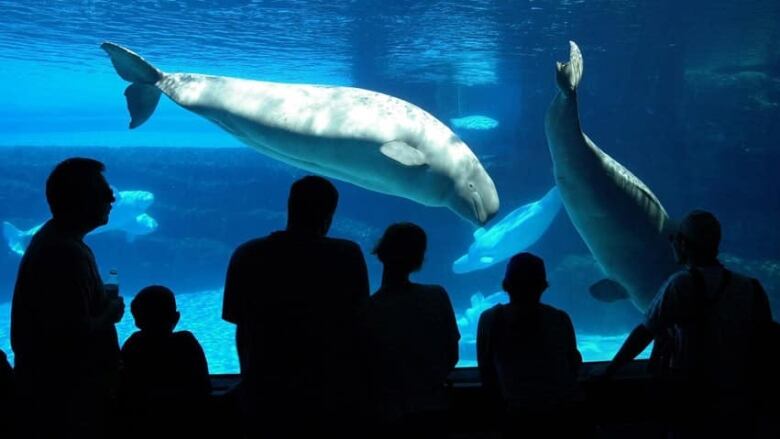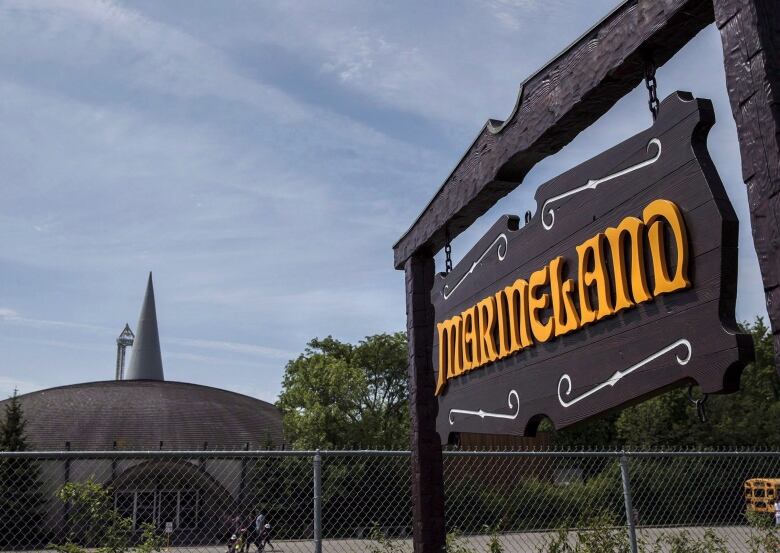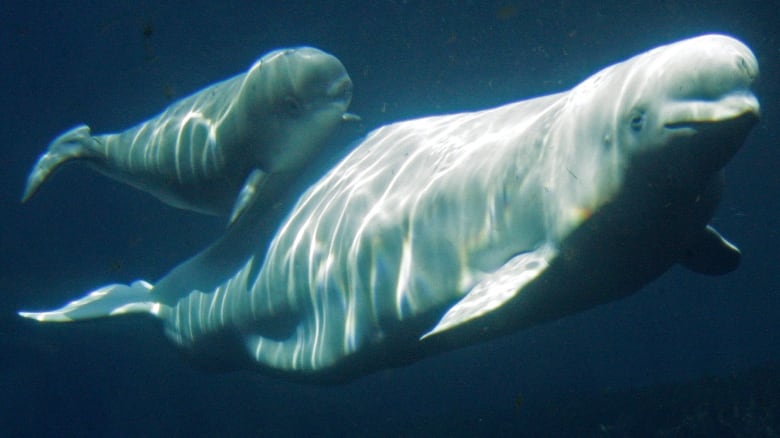'A more humane country': Canada to ban keeping whales, dolphins in captivity
Marineland in Niagara Falls, Ont., says new law won't impact its operations

Animal welfare advocates are celebrating after the House of Commons voted Monday to ban keeping whales, dolphins and porpoises in captivity in a move with long-term consequences for Canadian marine parks.
Bill S-203,known as the Ending the Captivity of Whales and Dolphins Act,passed a third readingin the House of CommonsMonday, more than threeyears after it was introducedin December 2015.
Thebill banskeeping andbreeding cetaceans including whales, dolphins and porpoises through amendments to the Criminal Code, and would levyfines to lawbreakersof up to$200,000.
Whales and dolphins that are already in captivitywill be grandfathered in by the bill, meaning parks can keep all the animalsthey currently own.
The billalso restrictsimporting and exporting these animals, and bans making them perform forentertainment.
The move alignsCanada with agrowing list of countries that are endeavouring to ban cetaceans in captivity, saidRebecca Aldworth, executive director of the Canadian chapter of Humane Society International.
This is "a victory for all Canadians who want this to be a more humane country," said Aldworth, whose organizationwas amonga coalitionof marine scientists and organizations backing the bill. Advocates had long argued that keeping these highlyintelligentcreatures in tanks iscruel. This is disputed by some marine park operators
Impact on Marineland
Monday's vote notably impactsMarineland, the Niagara Fallsamusement park and zoo thatis considered the last Canadian park committed to keeping cetaceans in captivity. Marineland owns about 61 of these animals, according topreviously reported data55 beluga whales, five bottlenose dolphins and one orca, or "killer whale."
The Vancouver Aquarium hasjust one dolphin left, advocacy groups say, but in January announced it would no longer hold whales and dolphins in captivity.

Marineland hadstrongly opposed to the bill, previously saying it would devastate attendanceand threaten conservation effortsat parks where these animals are on display. The park has alsosaid the bill jeopardizesseasonal employment forhundreds of local residents during the summer months.
Sen. Murray Sinclair,the former judge who helped usher the bill through Parliament, previously said that Marineland has enough beluga whales already to likely continue for another 30 years,"so no jobs are going to be lost as a result of this in the immediate future."
Despite the grandfathering,Phil Demers, a former Marineland trainer-turnedactivist, called it a "historic day for Canada." Demers has spoken out about his time at Marineland, andsays keepingmammalsin captivity is abusive.
"This is validation for all the concerns that ... former Marinelandemployees and activists alike have been stressing for many decades," said Demers,who has been involved with Bill S-203 since the start.
Marineland'confident' it remains compliant
In a statement Monday, Marineland Canada said it complies with "all aspects" of the bill.
"Bill S-203 does not impair the operations of Marineland.Marineland will continue to provide world-class care to all of its animals," the park said in an email.
Marineland said the bill indicates that cetaceans living in the park do"not amount to animal cruelty, despite the allegations of uninformed, professional activists."
The billexempts the whales currently at Marinelandand it "recognizes the educational role of Marineland by prohibiting entertainment only shows while continuing to permit Marineland's Educational Presentations," the park said.
Green Party Leader Elizabeth Maysaid Marineland is misinterpreting the legislation, which "very clearly" says that keeping cetaceans in captivity is animal cruelty. May, along withother advocates, hopes that whales currently living in captivity can eventually move to sanctuaries.

May sponsored Bill S-203, which was was first introduced by now-retired Liberal Sen. Wilfred Moore in December 2015. The billclearedthe Senate last October where it faced resistance from some Conservative senatorsafter nearly three yearsof debate and study. It passed theCommons fisheries committee in April.
This bill would neverhave passed without thousands of Canadians' support, said May, with many people writing letters and emails. Shecalled the bill a "non-partisan" effort.
The bill has exceptions: cetaceans can be kept in captivity ifthey'rereceivingcare or rehabilitation after an injury, orfor scientific research.
S-203 also puts restrictionson possessingreproductive materials, including cetacean sperm or an embryo.
With files from John Paul Tasker












_(720p).jpg)


 OFFICIAL HD MUSIC VIDEO.jpg)
.jpg)



























































































